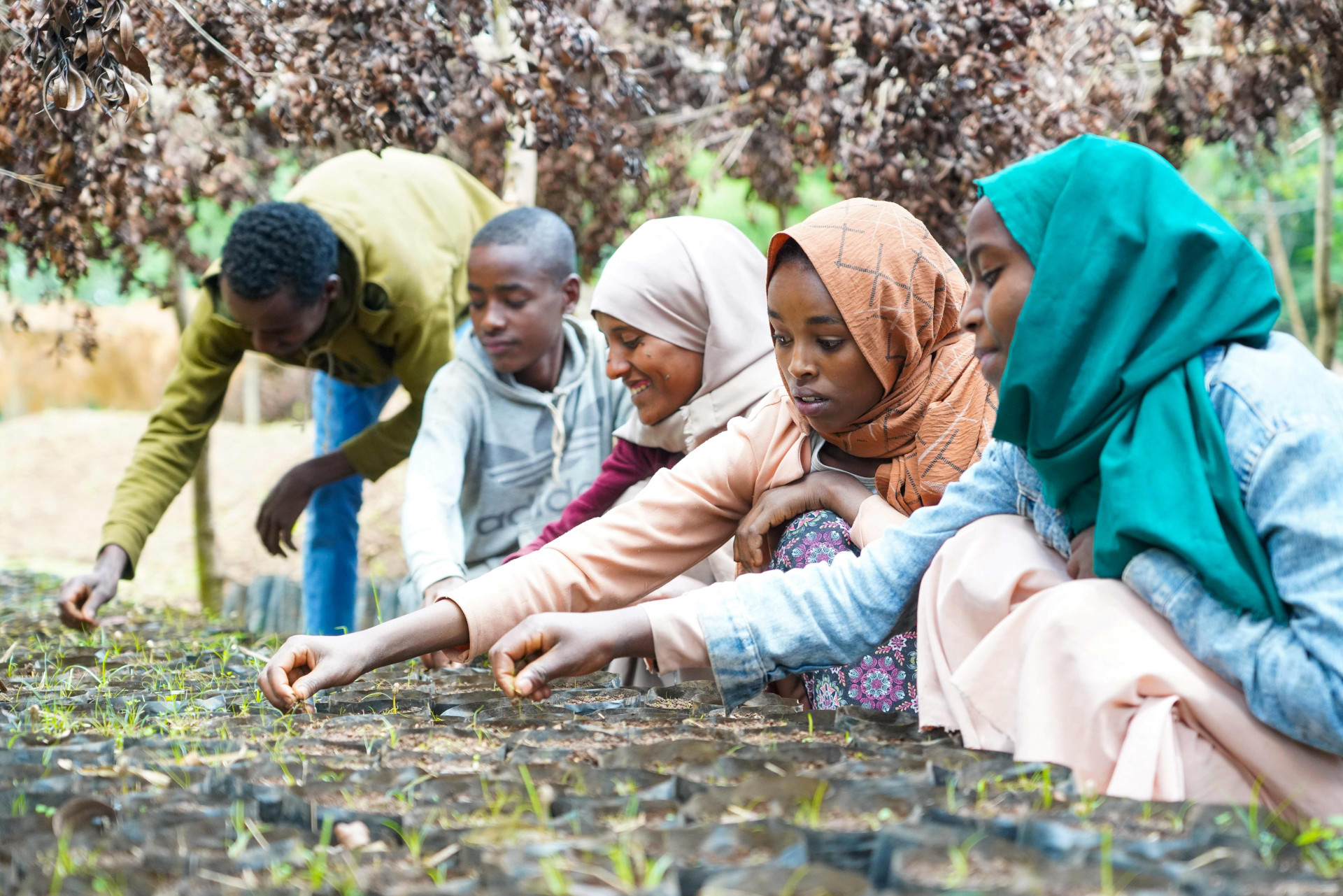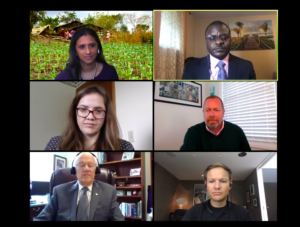In the vibrant region of Oromia, specifically in Jimma, a remarkable youth-led enterprise named Sabit, Medina, and Mubarak Youth-Led Enterprise (YLE) has emerged as a beacon of hope and change. This group of 30 determined young men and women came together in December 2022 as part of the ACAL-II Phase II project, which focuses on advancing conservation, agriculture, and livelihoods.
Before Digital Green and the Environment, Coffee Forest Forum (ECFF) stepped in through the ACAL Phase II project, the members of YLE faced unemployment and limited opportunities. Many had been helping their families with agricultural work in rural areas but lacked formal training in agriculture or nursery establishment.
With Digital Green’s intervention, YLE members received thorough face-to-face training on nursery establishment and management, youth group principles, by-law preparation, and entrepreneurship. This training gave them the theoretical and technical knowledge they needed to succeed. Additionally, the group received a significant operating capital of ETB 100,000.
The district administration generously provided 4 hectares of land for YLE’s nursery site. The group quickly seized this opportunity, producing various seedlings that not only generated revenue but also contributed to conserving the region’s biodiversity. Their current production includes 64,000 coffee seedlings, 4,500 avocado seedlings, 19,000 forest seedlings, 40 modern beehives, and 2.5 hectares of vegetables such as carrots, cabbage, onions, and potatoes.
Recently, YLE successfully harvested their vegetable crops, yielding 10 quintals of cabbage, 9 quintals of carrots, and 5 quintals of onions. These products were promptly delivered to the market, resulting in profitable returns for the group. Additionally, they ventured into honey production, reaping 350 kilograms of pure honey during one harvesting season. They sold 150 kilograms of honey in the local market, generating a total income of ETB 65,500. Combining the revenue from vegetable sales and honey production, YLE achieved an impressive total income of ETB 230,000 for the season.
These changes have been transformative for the YLE members. They have not only gained economic stability but also a renewed sense of purpose and hope. Sabit Seman, one of the group leaders, highlights the transformative power of Digital Green’s intervention, emphasizing how it has empowered the YLE members to become dynamic, visionary individuals ready for change.
The impact of the YLE’s success has not gone unnoticed. Abduselam Zakir, an expert from the district agriculture office, has been providing them with technical support for the past year. He commends the YLE as a shining example among similar groups in the district, praising their enthusiasm and readiness to contribute to the local economy.
Abdo Aba Mecha, the head of Gomma district administration, shares in the optimism surrounding the YLE. During his recent field visit with the Digital Green team, he highlighted the YLE as an exemplary group for the youth in Gomma Woreda, recognizing their potential to become future investors and valuable contributors to the country’s economy.
Looking to the future, the YLE envisions further progress and expansion. With 65,000 coffee seedlings maturing on their site, they anticipate selling each seedling for ETB 10, totaling a projected revenue of ETB 650,000. Moreover, they plan to diversify their production by venturing into animal fattening, beekeeping, and wintertime wheat irrigation. These endeavors hold the promise of acquiring even greater revenue and transforming their lives for the better.
The story of Sabit, Medina, and Mubarak Youth-Led Enterprise serves as an inspiring testament to the transformative power of youth empowerment and sustainable agriculture. With the support of Digital Green, these young individuals have overcome adversity and are now shaping a brighter future for themselves and their community in Oromia’s Jimma region.


 including youth. Yesterday, I moderated a panel, on the sidelines of the World Food Prize, focused on
including youth. Yesterday, I moderated a panel, on the sidelines of the World Food Prize, focused on